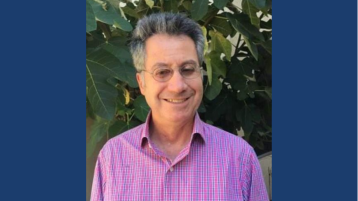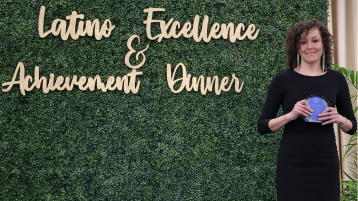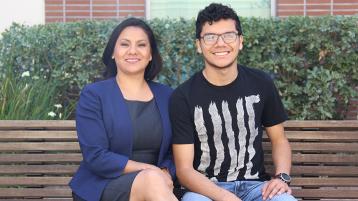


After studying a bachelor’s and master’s in Europe, I realized that if I wanted to continue studying Latin American literature and be able to afford it, I would have to leave the continent. That wasn’t an easy decision personally, but one I would repeat. I came to UCI because of the congenial atmosphere at the welcome visit and because I left wanting to work with the people (professors and graduate students) I met. In the past five years, I have enjoyed taking courses in different departments; TA-ing and co-teaching in teaching practicums; taking academic courses as well as those focused on methods/practice. Prof. Torres’ pedagogical training is invaluable. I took some time preparing my qualifying exams, but the Independent Studies and Directed Readings leading up to the exam and the exams themselves definitely improved my project. In my dissertation, I work on a concept of care beyond cure in literature on incurable illness. The chapters look at different figurations of incurable illness, for instance neobaroque contagion in Severo Sarduy’s, Haroldo de Campos’, and Nestor Perlongher’s writing. Or post-dictatorship as a hereditary illness in more recent texts by Diamela Eltit, Nadia Prado, and Guadalupe Santa Cruz. In another chapter, I approach Anglophone, Afro-Caribbean poetry of the 1990s from Latin American studies while also trying to test the limits of Latin American studies.
Everyone will tell you how busy UCI’s academic life is. On top of that, these are places I recommend for getting help and staying sane (ish) while jumping the hoops of PhD study: writing counseling and dissertation boot camps at the Graduate & Postdoctoral Scholar Resource Center; workshops at the Department of Teaching Innovation and Excellence; the Humanities Center for application workshops and reviews as well as grants for travel, language study and research; the UC Humanities Research Institute for fascinating research but also collaborative and/or UC-wide project funding; UCI’s counseling center and CARE center for mental health resources; FRESH hub for food and emergency funding; the Derrida papers at UCI’s special collections; the Académiques Latinx writing group and colloquia at our Spanish and Portuguese department; the union which organizes 48 000 academic workers at all ten UCs; the UC Natural Reserves System; the psychoanalytic consortium organized by UC faculty, the IPA and LA’s New Center for Psychoanalysis. Off campus, this area is gorgeous for rest and fun. For me, that is the breathtaking nature close and far, the theaters and galleries in LA and Long Beach, and Tijuana and its airport less than two hours away. I’ll leave it here but do reach out to me at gpare@uci.edu if you have any questions.
